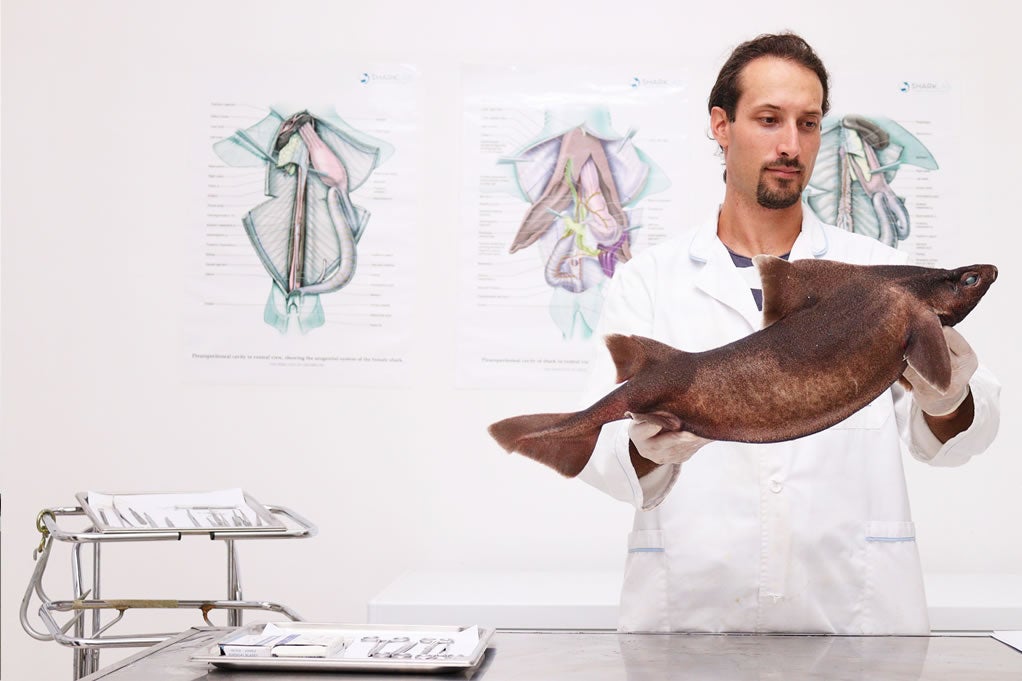Scientists have spotted a deep-sea “ghost” white shark with a rare genetic disorder, shedding light on how such abnormalities affect endangered marine species living near the sea floor.
They caught the critically endangered angular rough shark, Oxynotus centrina, with abnormal colouration off Albania’s coast.
The angular rough shark is typically dark grey-brown or black all over with some dark patches on the head and sides to help it blend into the dark deep-sea environment.
The shark is found on the outer shelves and upper slopes of the eastern Atlantic Ocean, reaching depths of upto 1300m.
Adults of the species can be recognised by their compressed body, “very rough skin”, “sail-shaped dorsal fins”, and typically “darker colouration”.
The shark caught off Albania, described in a study in the Journal of Fish Biology, has less pigmentation, resulting in overall pale appearance along with “white-greyish” patches. The pigmentation in the eyes is normal, however.
This is contrary to albinism, a condition which leaves animals without any pigmentation and with red irises.
The scientists consider the shark a case of leucism, a rare genetic disorder that affects melanin production.
In leucistic sharks, the iris pigmentation is normal even when the rest of the body appears completely white.
“This represents the first documented case of leucism in this species and the first colour disorder reported in the family Oxynotidae,” the study says.
In many species, the lack of pigmentation can make individuals stand out to both predators and prey, reducing their chances of survival.
This is especially so in the deep sea where light is so scattered there is nearly nothing left to detect.
However, this rare shark caught off Albania’s coast appeared unaffected by its strange appearance.

The health parameters of the rare shark compared with another individual found in the same area also showed no differences.
“Full morphometric characteristics are presented and compared with those of a normal individual of the same sex caught in the same area, showing no differences,” the study noted.
This suggests pigment disorders in deep-sea sharks may not necessarily impair their survival and growth, scientists said.







